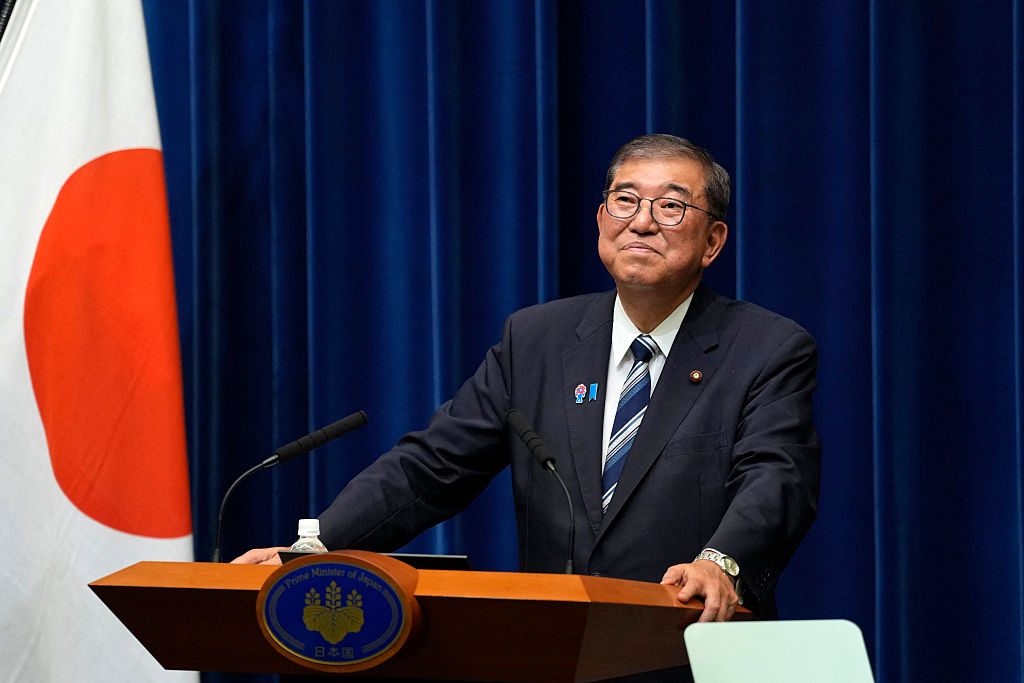Japanese Prime Minister Shigeru Ishiba has resigned. The 68-year-old veteran of the Liberal Democratic Party (LDP), who became party leader on his fifth attempt, served less than a year in the top post. Speaking at a press conference on Sunday evening (Japan time), Ishiba cited the ongoing US tariff negotiations, which he described as entering a “critical phase”, as a key factor in his decision. He added that now was the right moment to “make way for the next generation.”
In reality, the tariff talks were likely just an excuse. Ishiba had long been in a painfully weak position, surviving only because there was no credible alternative. After his party lost its majority in the Lower House elections last October — a gamble he had rushed into — and then again in the Upper House elections in July, his grip on power became untenable. Losing one election might be chalked up to misfortune, but losing two made it impossible for him to remain in office for much longer.
The election defeats were indelible stains. It was hard to see how Ishiba could have presented himself as the man to rebuild his party. He had no support within the party, which is a crucial element of Japanese politics, with its factions, king-makers and “shadow shoguns”. Still, the Japanese PM remained defiant, even vowing as recently as last week that he would stay on and oversee an economic stimulus package.
In the end, however, it became clear that he was isolated. Party bigwigs finally got through to him, and he has bowed — quite literally, as is customary in Japan — to the inevitable.
What does this say about Japan? If you thought European politics was messy, things are no better here. The country remains trapped under the seemingly perpetual, if increasingly brittle, rule of the LDP — a party that is little more than an uneasy coalition of factions, marked by infighting, shadowy manoeuvrings, and occasional corruption.
Alternatives do exist, but they are either hardly distinguishable from the LDP in policy or too new and untested to be credible. The rise of Sanseito — the Japanese equivalent of hardline, Reform-style immigration parties, dubbed “far-right” by some — has both alarmed and energised observers. Yet the party remains small and unproven, looking more like a flashy tech start-up than a serious contender for government.
It also highlights how weak and ineffectual Japanese prime ministers can be: Ishiba is the twelfth to hold the office this century. It was not that he was especially unpopular. His approval rating had been rising in recent weeks. He is widely regarded as intelligent and serious, with an independent streak — he once did the unthinkable and resigned from the LDP on principle. He handled the tariff negotiations with President Trump about as well as could be expected, avoiding a rupture with the US despite evident frustration. He is moderate and reasonable and has largely steered clear of personal scandal, which in Japan feels like a real achievement. Yet in the end, none of that counted.
As for what happens next, the LDP will have to elect a new leader. This means that there will be internal leadership vote to nominate Ishiba’s successor, which will be held in the coming weeks. But a new prime minister will need parliamentary approval, meaning that other parties will have a say in the matter. No standout figure has emerged, and some of the names being floated, such as Agriculture Minister Shinjiro Koizumi, son of former prime minister Junichiro Koizumi, or the Margaret Thatcher–inspired Sanae Takaichi, would be highly controversial. Koizumi is widely seen as a charismatic but lightweight figure, while Takaichi is regarded as an extremist due to her reputation as a hardline conservative.
The sad truth is that today’s resignation underscores how tackling Japan’s enormous structural problems — including an ageing society, a catastrophically low birth rate, a stagnant economy, and growing vulnerability in an increasingly hostile region — may be beyond the capacity of any single politician, at least within the current political structures. Until the system itself changes, Japan is likely to be condemned to weak leaders and stalled progress.











Join the discussion
Join like minded readers that support our journalism by becoming a paid subscriber
To join the discussion in the comments, become a paid subscriber.
Join like minded readers that support our journalism, read unlimited articles and enjoy other subscriber-only benefits.
Subscribe